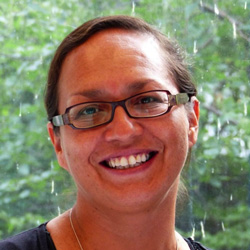Indigenous Youth and Mental Health in a Changing World

A message from Dr. Nel Wieman, FNHA Office of the Chief Medical Officer
Today, October 10, is World Mental Health Day, and this year's theme is "Young People and Mental Health in a Changing World."
As the FNHA serves First Nations and other Indigenous people in BC, I'll focus my message on this segment of youth and young adults. Certainly there's no question that our young people are living in a fast-moving world with multiple challenges: maintaining their own individual overall health and wellness (mental, emotional, physical and spiritual); home and family life; friendships and possible intimate relationships; the pressures of peers and social media, school and/or work; the environment around them; and uncertainties in their identities, families, communities and the wider world.
Despite these challenges, we have a sense that the majority of our youth are doing quite well. According to the most recent (2015/16) First Nations Regional Health Surveys (RHS) -- large-scale, Indigenous-governed studies of First Nations people living in communities across the country -- a majority of youth (88.4%) rated their mental health as "good, very good or excellent." This means that just under 12% of our youth feel their mental health could be better; this is the group that especially needs our care and attention. Twenty-three thousand First Nations people, including almost 5000 First Nations youth ages 12-17 years, participated in this survey, called the RHS Phase 3 Survey (they are conducted in phases, every four to five years).
One area of challenge and potential impact on the mental health of Indigenous youth is the upcoming legalization of cannabis. A lot of misleading information has been shared in various media, leaving parents, guardians and family members with many questions and concerns around cannabis. These concerns are well-founded, given that cannabis is known to be particularly harmful to the developing (young) brain and can affect mental health. Please see my earlier message on this subject here. As well, the FNHA has a webpage dedicated to providing Indigenous individuals, families and communities with information regarding cannabis now that it is about to be legalized on October 17, 2018.
Going back to the RHS Phase 3 Survey: although about 73% of Indigenous youth stated that they had not used cannabis at all in the past 12 months, this may be falsely high as youth may not have felt comfortable disclosing this information for fear of consequences. But we do know that of the 27% of our youth who DO use or admit to using cannabis, a significant proportion use cannabis daily or regularly. This is concerning, because in many cases, our youth are already impacted by intergenerational and contemporary trauma, and this puts them at a higher risk of experiencing some of the negative impacts of cannabis use.
Unfortunately, however, the strategy of "Just say no" to drugs does not work. Our brains are hard-wired to not respond to being told what to do. In addressing the issue of cannabis use or of other types of mental/emotional distress, we need to find ways to promote having conversations with our youth – ways that are non-confrontational, non-judgmental and helpful – ways that create open lines of communication and improve resilience. Our youth are often the last people asked how they want to be engaged. It's time for adults to allow the voices, questions and concerns of our young people to be at the forefront.
If we can create "communities of caring" for one another by having open, honest conversations about cannabis use and other mental health issues, we can reduce the associated stigma and hopefully promote increased resilience and overall wellness of our youth. I have attended many conferences and meetings where I hear the same phrase over and over again: "Our youth are our future." While I agree with this sentiment, I would also propose that "Our youth are our present." That is, they are growing up in our presence, now, and they need our support -- not our judgment or lectures. So today, on World Mental Health Day, let's let them know that we are open and available to listen to their concerns, from their perspective.

